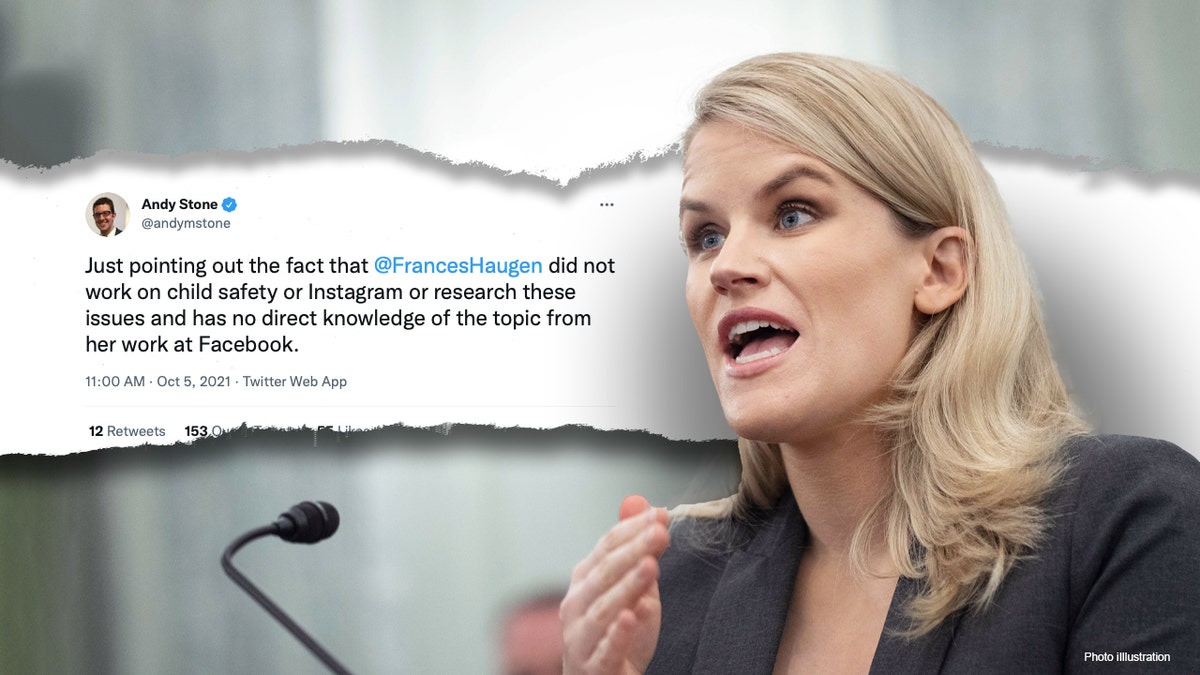Media top headlines October 5
In media news today, left-leaning news outlets justify protestors harassing Krysten Sinema in a public bathroom, Anthony Fauci clarifies his remarks on Christmas gatherings, and GOP Senate candidate Sam Brown fires back at Twitter as tech giant admits his account was banned by 'mistake'
Facebook Global Head of Safety Antigone Davis defended the company's practices Tuesday, claiming most people feel safe using the platform while calling for more regulations to give users confidence in the company.
The social media giant is under fire on several fronts, including accusations that it knowingly exposes users to harmful material for greater engagement and profit.
"When you deem something unsafe, do you get to decide, let’s remove from this from the platform, or is it the people who are also responsible for revenue?" MSNBC's Stephanie Ruhle asked.
"So I don’t personally decide, but it is the safe and security team that decides," Davis said. "Of course we want to allow for freedom of expression, but one of the underlying principles behind the work that we do is ensuring people's safety and security. Most people really do feel quite safe and secure on our platform, and they’re coming back and using our platform because they do feel safe and secure, and we are doing a good job to get that content off. But I do think there are validation systems that people want in place."
RAMASWAMY: FACEBOOK SHOULD BE ACCOUNTABLE FOR ‘LYING,’ POTENTIAL ‘CONSUMER FRAUD’
Ruhle shot back that "a lot of people felt safe smoking cigarettes" or not getting vaccinated.
"People don’t feel like putting seat belts on. They’re uncomfortable but they wear them because it’s saves them," Ruhle said.
"And I think we are actually fundamentally aligned here, which is we do think that is what’s necessary," she said. "We do think that regulation is important so there is somebody outside of us validating our work."

Former Facebook employee and whistleblower Frances Haugen testifies before a Senate Committee on Commerce, Science, and Transportation hearing on Capitol Hill, October 5, 2021, in Washington, DC. (Photo by Drew Angerer / POOL / AFP) (Photo by DREW ANGERER/POOL/AFP via Getty Images) (Photo by DREW ANGERER/POOL/AFP via Getty Images)
Davis called for specific rules on what data on Facebook users it could provide to independent researchers. She also said, as a mother, she would not work at Facebook if she thought social media was harmful to children.
The debate over Facebook cuts into issues of freedom of speech, government overreach, what constitutes censorship, and who decides what's true or not. Criticism of Facebook is a rare issue that has united some elements of the left and right, albeit for different reasons, as the latter has complained about censorship of conservatives while some liberals want more action taken against what they deem hateful content.
PARENTS SLAM FACEBOOK FOR TARGETING CHILDREN: ‘I DON’T TRUST ANYTHING ON SOCIAL MEDIA'
Davis appeared on MSNBC after a stormy 48 hours for the company. Whistleblower Frances Haugen revealed herself on "60 Minutes" as the leaker of private research on what she called its amplification of hateful content and misinformation, and Facebook and Instagram suffered an hours-long outage Monday that sent its stock tumbling.
Haugen testified before Congress Tuesday and continued to accuse Facebook of prioritizing profits over the well-being of its billions of users by purposefully exposing it to inflammatory content. She suggested exempting Facebook's algorithms from Section 230 protections, similar to legislation introduced by Democratic Reps. Anna Eshoo, Calif., and Tom Malinowski, N.J.
Facebook CEO Mark Zuckerberg has previously called for lawmakers to make the kind of regulatory calls he doesn't believe should be up to private companies.
CLICK HERE TO GET THE FOX NEWS APP
"I just believe strongly that Facebook shouldn't be the arbiter of truth of everything that people say online," he said last year. "Private companies probably shouldn't be, especially these platform companies, shouldn't be in the position of doing that."




















